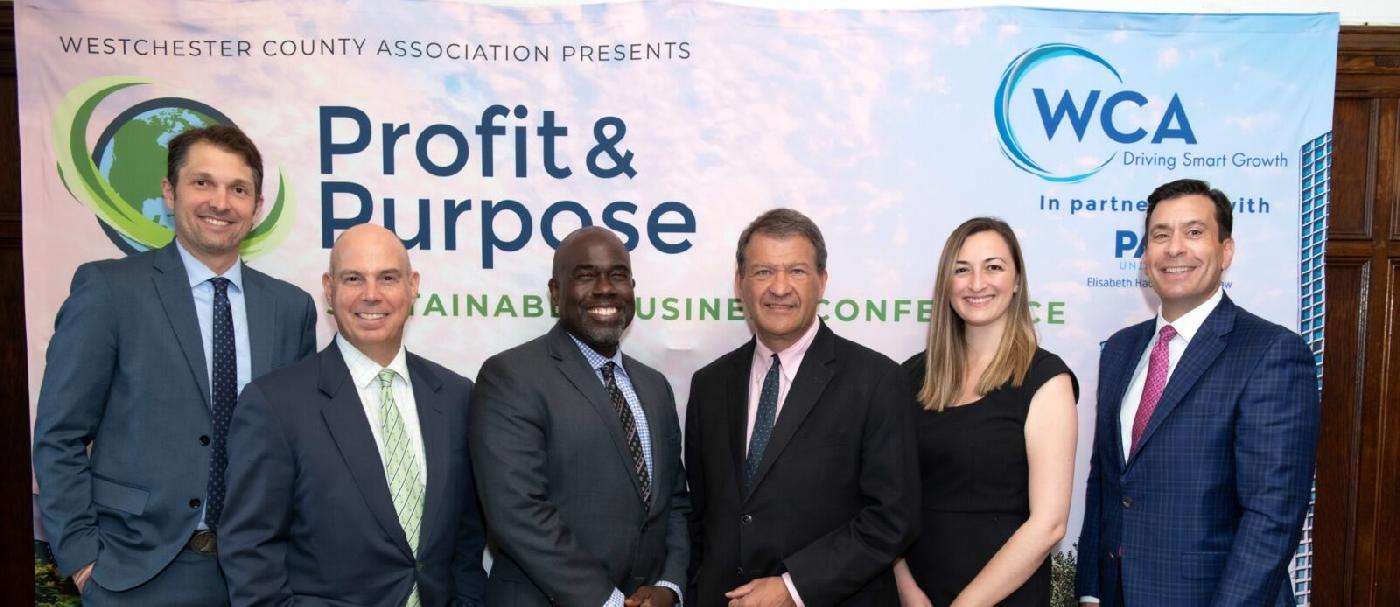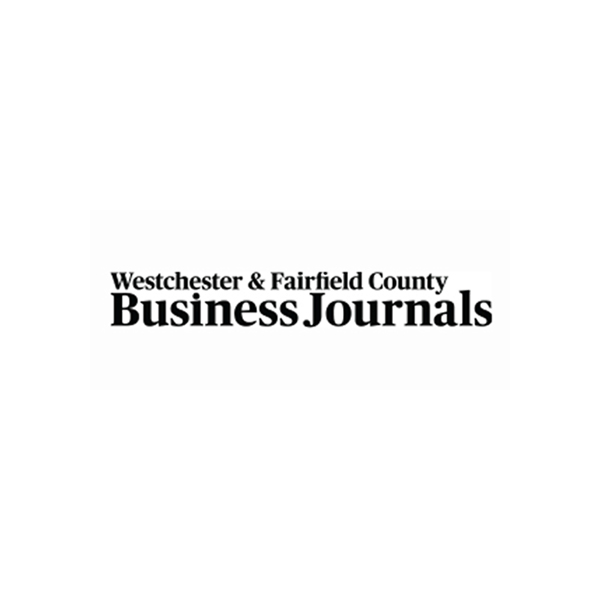
Jason J. Czarnezki, Sustainable Business Law Hub at Elisabeth Haub School of Law at Pace University; Michael N. Romita, president/CEO, WCA; Horace E. Anderson Jr., Dean, Elisabeth Haub School of Law at Pace University; Westchester County Executive George Latimer; Christina Gunnell, senior manager, Sustainability & ESG, Deloitte; Chris Fisher, WCA vice chair, Partner, Cuddy & Feder LLP.
Business, nonprofit and government leaders attended the WCA’s second annual Sustainable Business Conference hosted in partnership with Pace University’s Elisabeth Haub School of Law in White Plains. The event held June 1 at the law school, focused on new opportunities in sustainable investing and real estate, navigating an evolving regulatory landscape and the connection between sustainability and diversity, equity and inclusion. New this year, a “Sustainability Bootcamp” workshop served as a primer for businesses of all sizes to get started with practical tools to develop a sustainability program.
“We’re at the threshold of a fundamental transformation of businesses toward a more sustainable future. Sustainability is not a far-away concept – it’s here and now,” said Michael N. Romita, president and CEO of the Westchester County Association (WCA).
Horace E. Anderson Jr., Dean, Elisabeth Haub School of Law at Pace University in White Plains, said, “This partnership allows us to leverage our combined knowledge, networks and expertise in addressing the urgent sustainability challenges of our business community with creative solutions. Sustainability is core to our mission as evinced by the successful launch of our Sustainable Business Law Hub.”
“Businesses need to think about ESG risks and opportunities as business risks and opportunities,” said Christina E. Gunnell, keynote speaker and senior manager, Sustainability & ESG Services, Deloitte & Touche LLP. She emphasized new regulations coming down the pike that will impact all businesses – not just major corporations, but those further down the supply chain.
“Sustainability is no longer a siloed initiative; it has become part of the core strategy for most businesses. There’s a role for organizations of all sizes and employees at every level. That starts with getting C-suite buy in and involves employees, customers and other stakeholders to develop initiatives that are most impactful for your business, the environment, and the community, said Gillian Griffin, sustainable supply chain program manager, senior P2 engineer, New York State Pollution Prevention Institute at Rochester Institute of Technology.
Conference speakers included a who’s who of corporate and political leaders, said Romita. “The caliber of discourse at this conference was very high-level. There is so much static with this concept that it’s important to convene real authorities working on practical solutions…”
The conference was made possible with major support from sponsors Bank of America, Brightcore, Chase, Con Edison, Dandelion Geothermal, Harrison Edwards, Pace University’s Elisabeth Haub School of Law, PKF O’Connor Davies, Skanska, Webster Bank and The Catalyst/Westchester County Economic Development.

